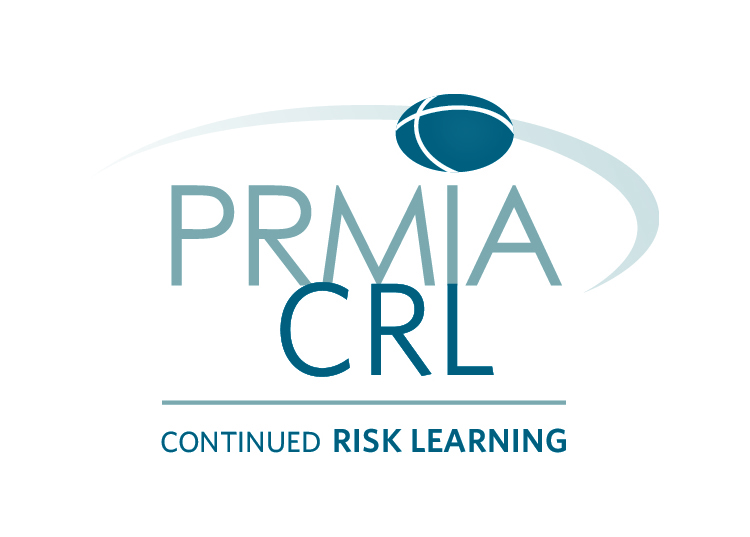FRTB & IMA’s Most Pernicious Challenges, Part I

This course includes solutions for passing the P&L attribution test and managing non-modellable risk factors. The new Basel III framework for market risk, also known as FRTB, represents a pivotal change in the way banks’ trading businesses will be capitalized, regulated, and managed. Join us for this session or the full eleven-part series.
Register Now
Virtual Simulated Live Training
Presented By: Sanjay Sharma, PhD, Founder and Chairman & John “Jeb” Beckwith, Managing Director, GreenPoint Global
Simulated Live Date: Wednesday, July 18, 2018
Time: 24-hour interactive on-demand access, 12:00 am-11:59 pm EDT
Session Length: 90-minutes
About This Course
In this course (7 of 11), learn about the significant challenges to calculating and managing risk using the IMA approach. The way banks manage and quantify these attributes will determine how successful they will be in implementing IMA desks.
“P&L Attribution Test” covers the toughest challenge for the internal models approach. The P&L attribution test is designed to continually evaluate the extent to which a bank’s internal models capture risk. This class describes the approaches as well as the dos and don’ts for managing P&L attribution test frameworks.
“Managing Non-Modellable Risk Factors (NMRFs)” covers what will likely be the source of significant uncertainty associated with capital charges within the IMA approach. This class will describe the uncertainties and their mitigating approaches.
The relationship between risk sensitivity granularity, NMRF, and P&L Attribution will be critical to understand and to optimize. We uncover how to calibrate the granularity of risk sensitivities in order to establish the best balance between minimal NMRF and maximum chance of P&L test passage.
Capital Cliffs and Capital Floors. Explore techniques for managing capital cliffs and capital floors at the desk and enterprise levels.
Registration Fee
Sustaining Member $89.00 | Contributing Member $99.00 | Non-Member $109.00
Or, register for the full series, Market Risk Management under Basel III and FRTB
Simulated Live—How it Works
Register: Register to attend this course or the full series (11 sessions).
Attend: Each pre-recorded course will be available for a 24-hour period on the starting date and time, to accommodate your schedule and time zone.
Interact: During the simulated live session, you will have the opportunity to submit questions to Sanjay or Jeb. The instructors will prepare a customized response to you within 72-business hours. Questions must be submitted during the 24-hour open course period.
Recording/Resource Access: Included in your purchase is access the recording for 60 days following the original course date and a PDF of the course handouts.
Who Should Attend
Heads of Trading Businesses, Trading Desk Heads, Market Risk Managers, FRTB Program Managers, Market Risk Auditors, Enterprise Risk Managers, Liquidity Professionals, Regulatory Capital Professionals, Model Validation Professionals, Market Data Professionals, Regulators and Supervisors
About Our Experts
Sanjay Sharma, PhD, is the Founder and Chairman of GreenPoint Global – a risk advisory, technology, education, legal and compliance services firm headquartered in New York. Founded in 2006, GreenPoint has grown to over 350 employees and over 40 consultants with a global footprint. During 2007-16, Sanjay was the Chief Risk Officer of Discretionary Capital Group and Managing Director in Fixed Income and Currencies Risk Management at RBC Capital Markets in New York. His career in the financial services industry spans over 25 years during which he has held investment banking, risk management and technology transformation positions at Goldman Sachs, Merrill Lynch, Citibank, Moody’s and Natixis. Sanjay is the author of “Risk Transparency” (Risk Books, 2013) has also published several papers. Sanjay is co-author with Jeb Beckwith of the forthcoming book “Fundamental Review of Trading Book – A Handbook for Practitioners and Regulators”, to be published by RiskBooks, Incisivemedia in spring, 2018.
He is an Adjunct Professor at New York University and Fordham’s quantitative finance programs, and financial markets program at EDHEC in Nice, France. He has served as the Founding Director of the RBC/Hass Fellowship Program at the UC Berkeley, and a member of the Board of Directors of UPS Capital (a Division of UPS). He serves on the Global Board of Directors for Professional Risk International Association (PRMIA). He holds a Ph.D. in Finance from New York University and an MBA from the Wharton School of Business and has undergraduate degrees in Physics and Marine Engineering.
John “Jeb” Beckwith is Managing Director of GreenPoint’s financial institutions division serving banks and insurers. Jeb brings over 30 years of industry experience in the management of risk, capital markets, lending, and transaction banking practices. Prior to joining GreenPoint, he was Managing Director at RBC Capital Markets for 10+ years. At RBC, Jeb led several front office and risk management groups related to global financial institutions including corporate banking, capital markets cross-sell, regulatory advisory, transaction banking, and trade finance. Jeb founded RBC’s bank regulatory/ratings advisory team and founded/chaired RBC’s committee to adjudicate global limits for all bank and sovereign counterparty risks. Prior to joining RBC, Jeb held various management and corporate banking positions with increasing levels of responsibility at MUFG, Bank of America, and BNY-Mellon.
Jeb is an Adjunct Professor at New York University’s Tandon School and at Fordham University’s school of financial engineering. Jeb has published several papers on banking regulation and is co-author, with Sanjay Sharma, of the forthcoming book: “Fundamental Review of Trading Book – A Handbook for Practitioners and Regulators”, to be published by RiskBooks, Incisivemedia in 2018.
Reference Readings:
• Fundamental Review of Trading Book – A Handbook for Practitioners and Regulators” co-authored by Sanjay Sharma and John Beckwith, 2018, RiskBooks, Incisivemedia
• BCBS d352 + explanatory notes, https://www.bis.org/bcbs/publ/d352.htm
• BCBS Jan 2017 FAQ, https://www.bis.org/bcbs/publ/d395.htm
• BCBS Dec 2017 Basel III standards, https://www.bis.org/bcbs/publ/d424.htm
• BCBS March 2018 FRTB CP and revised FAQ: https://www.bis.org/bcbs/publ/d436.htm
 Continuing Risk Learning Credits: 1
Continuing Risk Learning Credits: 1
PRMIA Continuing Risk Learning (CRL) programs provide you with the opportunity to formally recognize your professional development, documenting your evolution as a risk professional. Employers can see that you are not static, making you a highly valued, dynamic, and desirable employee. The CRL program is open to all Contributing, Sustaining, and Risk Leader members, providing a convenient and easily accessible way to submit, manage, track and document your activities online through the PRMIA CRL Center. To request CRL credits, please email [email protected].
If this is your first time accessing the PRMIA website you will need to create short user profile to register.
Questions? Please contact [email protected]